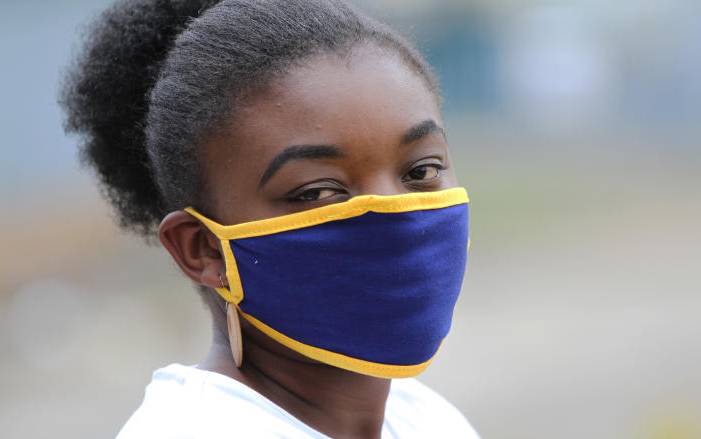
A lady wearing her homemade / designer mask spotted at the Nairobi Railways Club, April 10, 2020, Nairobi. President Uhuru Kenyatta issued a mandatory directive for all Kenyans to wear protective face masks while in public to help curb the spread of the Coronavirus (COVID -19) [Elvis Ogina, Standard]
The coronavirus pandemic has changed the way most of us think about our health, work, parenting, and leisure. As the virus continues to ravage the world, there have been concerns about how it will have a long term impact on the economy.